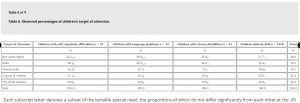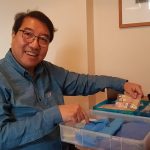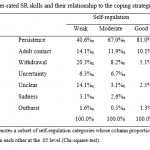Research on the involvement of autistic children in daily activities in inclusive early childhood education is scarce. In Finland, all children, including autistic children, under the age of seven (before basic education) are entitled to participate in early childhood education and care. Children also attend compulsory, free-of-charge pre-primary education during the year before their basic education begins. Furthermore, attending early childhood education and care is not dependent whether a child requires day care because of their parents’ work. Autistic children attend early childhood education in inclusive day care centres. Thus, in this study, we examined the involvement of autistic children by focusing on the objects of their attention during daily activities in inclusive day care centres in Finland.
The data were collected between 2017 and 2020, during the research and development project Progressive Feedback, in which children were observed using systematic sampling. The study material consisted of observations of seven autistic children as part of a larger sample of children. The data were analysed using statistical methods.
The results indicated that, during their deepest involvement, autistic children expressed positive emotions regarding participation and collaborated with and directed their focus towards other children. Moreover, autistic children demonstrated the most intensive involvement during adult-supported play.
In our study, we also discovered that peer relationships seem to play a key role in promoting involvement and, thus, well-being and learning. Our findings demonstrated that autistic children were most involved in their activities when they were oriented towards several children or just one child at a time; indeed, they were even more involved in such activities than those in relation to adults, non-social objectives or the situation overall. This is an interesting finding, as previous studies have shown that autistic children (Chang et al. 2016), as well as those with SEN generally (Broomhead 2019), have fewer experiences of social interaction with neurotypical peers. Thus, this finding suggests, in alignment with earlier studies, that ECEC professionals must provide systematic support for the interaction and social skills of the individual child and the group as a whole (Broomhead 2019; Chang et al. 2016).
Syrjämäki, M., Reunamo, J., Pesonen, H., Pirttimaa, R. & Kontu, E. (in print). The involvement of children with autism in early childhood education. The involvement of children with autism in early childhood education. Read the article: https://www.tandfonline.com/doi/full/10.1080/08856257.2023.2179310





